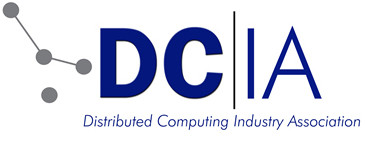What is the DCIA?
The Distributed Computing Industry Association (DCIA), a Washington, DC based international trade organization, was established in 2003 with a mission to foster the development and adoption of distributed computing technologies, particularly as they are deployed for the delivery of high-value content.
The DCIA is a voluntary, consensus organization with representation from all substantially affected sectors of the rapidly evolving distributed computing industry.
This includes industry-leading software and solutions developers and distributors, broadband network operators, content rights-holders, and service-and-support firms.
DCIA participants are engaged in the development and adoption of business and technical standards-and-practices to advance the commercial development of distributed computing technologies.
What Problems is the DCIA Trying to Solve?
As a non-profit trade association, the DCIA is focused on commercial advancement of cloud computing and related technologies by overcoming obstacles to such development.
Obstacles include both legitimate and perceived issues in areas such as cybersecurity, interoperability, and consumer education.
The DCIA works to overcome obstacles to growth through such activities as business development, market research, conferences and expos, industry communications, working groups, advocacy initiatives, standards setting, and related endeavors. The DCIA also publishes the weekly online newsletter DCINFO.
The DCIA’s success is closely aligned with the satisfaction of end-users, ranging from professionals within large enterprises utilizing solutions for their work to individual consumers accessing services for their personal use.
How does the DCIA Operate?
DCIA’s bylaws serve as the framework to address vital issues surrounding distributed computing, which include; (i) establishing business practices and technical standards to commercialize distributed Internet computer systems, (ii) encouraging the voluntary adoption of those standards and practices in affected industry categories, and (iii) shaping public policy and promoting consumer awareness of key issues.
Standards and practices address such areas as privacy and security, protection of intellectual property rights, associated public interest issues, technical compatibility, quality of service, and other related technical, legal, and policy matters.
DCIA standards and practices are voluntary, but form the basis of a self-regulating broad coalition of companies. The DCIA’s role with respect to industry standards and practices includes –
- Advocating adoption by businesses and Internet standards organizations
- Monitoring their implementation
- Ensuring compliance
- Swiftly resolving disputes
DCIA members form and participate in working groups and DCIA moderated forums where interested parties exchange ideas and develop recommendations to the membership and ultimately, the public at large, on the establishment of standards-and-practices.
The DCIA publishes the research and findings of its working groups and serves as a resource for information, commerce, communication, and collective understanding for the public and private sector as well as to governments and interested organizations around the world.
What Is the DCIA’s Agenda
- Support business development initiatives of member companies
- Provide communications and networking forums for industry participants
- Form working groups based on member company priorities
- Outline structures for business practices and technical standards
- Conduct distributed computing research focusing on:
- Usage patterns
- Demographic data
- Growth statistics
- Develop business models for new distributed computing technologies
Who Should Join the DCIA?
Distributed computing offers numerous opportunities and challenges to a wide range of stakeholders that include:
- Application Developers
- Broadband Network Operators
- Connected Device Manufacturers
- Content Rights Holders
- Data Storage Companies
- Internet Service Providers
- Software Distributors
- Technology Support Firms
